- Your cart is empty
- Continue Shopping

Product
Cabtana (Cabazitaxel 60 Mg Injection) is a potent anticancer medication designed to treat certain types of advanced prostate cancer. Below is a comprehensive overview of Cabtana, including its description, uses, how to use, storage conditions, mechanism of action, precautions, contraindications, drug interactions, overdose, and potential side effects.
Description: Cabtana is a sterile, non-aqueous, and translucent solution containing 60 mg of Cabazitaxel, a taxane antineoplastic agent. It is supplied in a single-dose vial for intravenous administration.
Uses: Cabtana is primarily indicated for the treatment of metastatic hormone-refractory prostate cancer (mHRPC) in patients previously treated with a docetaxel-containing regimen.
How to Use: Cabtana is administered intravenously by a healthcare professional. The recommended dose is 25 mg/m² every three weeks. Pre-medication with corticosteroids, antihistamines, and H2 antagonists is advised to reduce the risk of hypersensitivity reactions.
Storage Conditions: Cabtana should be stored in its original packaging at controlled room temperature, protected from light. It should not be frozen, and any unused portion should be discarded.
Mechanism of Action: Cabazitaxel inhibits microtubule depolymerization, disrupting the cell cycle and leading to apoptosis (cell death). Its mechanism of action is similar to other taxanes, interfering with the normal functioning of cancer cells.
Precautions:
- Patients should be monitored closely for hypersensitivity reactions during and after infusion.
- Blood cell counts should be regularly monitored to manage potential myelosuppression.
- Adequate pre-medication should be administered to minimize the risk of hypersensitivity reactions.
Contraindications: Cabtana is contraindicated in patients with a history of severe hypersensitivity reactions to Cabazitaxel or other drugs formulated with polysorbate 80.
Drug Interactions: Caution is advised when Cabtana is used concomitantly with drugs that are potent inhibitors or inducers of cytochrome P450 3A4.
Overdose: In case of overdose, supportive care and appropriate measures should be taken. There is no specific antidote for Cabtana.
Side Effects: Common side effects of Cabtana may include neutropenia, anemia, thrombocytopenia, diarrhea, nausea, vomiting, asthenia, and back pain. Serious adverse reactions may include infections, febrile neutropenia, hypersensitivity reactions, and renal failure.
It’s important for patients to communicate any unusual or severe side effects to their healthcare provider promptly.
This information is a general overview, and specific details may vary based on individual patient characteristics. Patients should always consult their healthcare professionals for personalized advice and guidance regarding Cabtana.


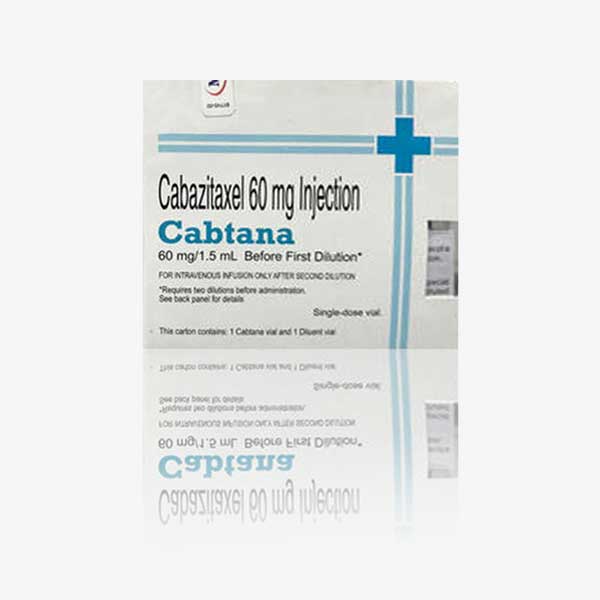
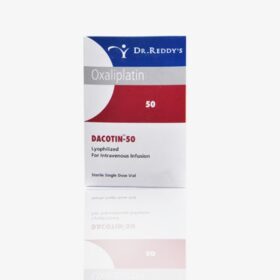
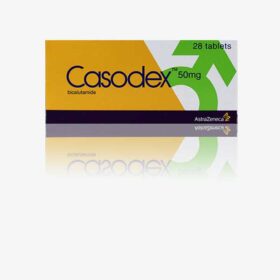
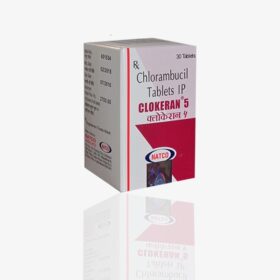
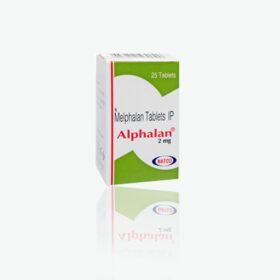
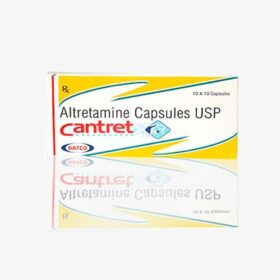

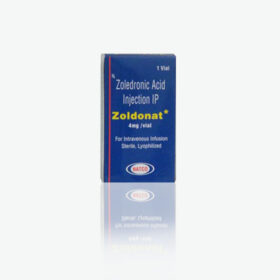
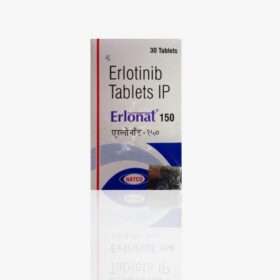



Reviews
There are no reviews yet.